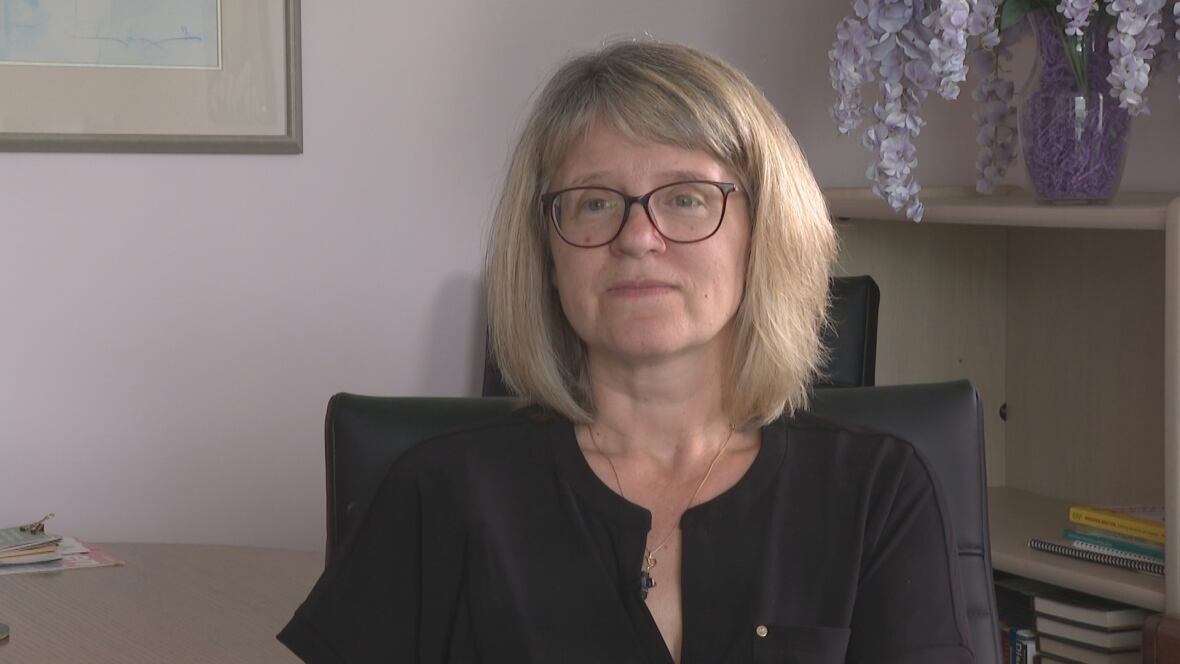Windsor shelter closer to adding more transitional housing for women
Funding for 40-unit project still needs to be secured

A women's shelter in Windsor, Ont., that says it often ends up discharging women into homelessness will be one step closer to building more temporary housing.
In the next few weeks, Hiatus House will be remedying the land across from its current building, at Chatham Street East and Louis Avenue, in preparation for a 40-unit transitional housing building. Transitional housing provides temporary shelter along with social supports for people at risk of or experiencing homelessness.
Across Windsor, there's little transitional housing available, specifically for women and families, those in the sector say.
"One of the biggest frustrations that the shelter staff feel, along with the women when they're being discharged, is that they really have nowhere to go; a lot of the time they have no where to go and the staff struggle to discharge women to nothingness," said Sylvie Guenther, executive director of Hiatus House.
"[The women] want to stay because they don't know what's next in their lives, and sometimes they want to make the change and they're ready to make the change, but we can't help them make that happen because there's nowhere for them to go."

Right now, Hiatus House has 42 emergency shelter beds and no transitional housing. Typically, it says women stay about six to eight weeks.
Often times, they are turning women away and can only accept those who they assess are in a higher-risk situation.
But often, Guenther said, women leave before they're ready and that can often mean they end up continuously bouncing from one shelter to the next, ending up on the streets, couch surfing or even going back to an abusive relationship.
Transitional housing will provide the women more time and space to find their independence, Guenther said.
"If we can shelter women and make sure they have the resources they need to eat and to care for their children, then we can begin doing some of that other work," she said.
"That will really give them the freedom to be able to begin to heal while feeling good. And meanwhile, their names will come up on the housing list or they'll find employment ... and then they'll feel ready and secure in making those next steps."
Gisele Harrison, a registered social worker in private practice and a trauma therapist, works with women who have experienced domestic violence and trauma.
She agrees more long-term, stable housing with educational, employment and child-care supports would benefit a lot of women leaving threatening situations.
"Traditionally, women leaving a violent, abusive relationship, have often been forced to stay in that relationship because they didn't have the finances to be able to leave," she said.
"If somebody actually makes it to an emergency shelter, then they have to try and get some housing and their finances might not be in place."
She said the shelter systems in Windsor need more funding to expand and also be able to accommodate women for longer periods of time. Beyond housing, Harrison said, people need more publicly funded long-term counselling.
The Welcome Centre Shelter for Women & Families told CBC News in an email that it has 32 emergency shelter beds for single women and 29 for families, but no transitional housing.

Windsor's Housing Information Services has transitional housing, though it did not respond in time for comment.
The House of Sophrosyne, which helps women with addiction, has transitional housing. But its website specifies that it is for pregnant women or new mothers who are homeless or at risk of homelessness, and they have gone through their residential addiction programming.
Lady Laforet, executive director of the Welcome Centre, said in an email that many communities prioritized housing people over a "transitional focus."
"But, the key parts of transitional housing that work are support (staff, counsellors), community (of similar women) and time to adjust from various traumas," she said.
No clear timeline on when housing will be built
There's no timeline yet for when the housing will be built, as Hiatus House says a lot of that depends on funding.
In total, the project is expected to cost $22 million.
By mid-summer, the land is expected to be remediated as it was found to be polluted, according to Guenther.
At this time, Guenther said, they are trying to secure funding from the city and upper levels of government. She says the price tag on a project like this is one of the biggest barriers to bringing these supports to the community.
"The need for transitional housing is immediate, we are facing these crisis situations every day, we are seeing women come back again and again," she said.
Working in partnership with Hiatus House are Legal Assistance of Windsor and the Sexual Assault Crisis Centre of Essex County.

